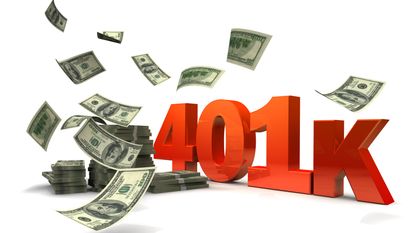Roth IRAs
News, insights and expert analysis on roth IRAs from the team at Kiplinger.
Latest
-

Retirement Tax Bombs: How Roth Conversions May Cut the Blue Wire
If you have a significant amount in tax-deferred retirement accounts, you could be sitting on a tax time bomb. Luckily, there's a way to defuse the situation.
By Patrick Mueller, Investment Adviser Representative, RFC
-

Eight Things No One Tells You About Retirement
Making Your Money Last As you advance toward retirement, it's a good idea to start sharpening the focus of your retirement vision.
By Rachel L. Sheedy
Making Your Money Last -

Ask the Editor — Tax Questions on Inherited IRAs
Ask the Editor In this week's Ask the Editor Q&A, we answer tax questions from readers on the rules on inheriting IRAs.
By Joy Taylor
Ask the Editor -

Roth IRA Conversions in the Summer? Why Now May Be the Sweet Spot
Converting now would enable you to spread a possible tax hit over more than one payment while reducing future taxes.
By Daniel Razvi, Esquire
-

Ask the Editor — Tax Questions on Disaster Losses and more
Ask the Editor In this week's Ask the Editor Q&A, we answer tax questions from readers on paper checks, hurricane losses, IRAs and timeshares.
By Joy Taylor
Ask the Editor -

Is Your IRA Protected from Creditors in Bankruptcy?
Can creditors take some or part of your IRA funds if you file for bankruptcy? Learn more about the federal protections that exist and to what extent they protect your IRAs.
By Donna LeValley
-

How to Open a Roth IRA in 5 Simple Steps
retirement Here's what you need to know in order to open a Roth IRA.
By Erin Bendig
retirement -

Five Roth IRA Pitfalls Your Adviser May Not Tell You About
Heffalump traps may be imaginary, but Roth IRA pitfalls are very real. They could upend your retirement if you're unaware of them.
By Maurie Backman
-

Ask the Editor, June 20: Questions on Tax Deductions and IRAs
Ask the Editor In our latest Ask the Editor round-up, Joy Taylor, The Kiplinger Tax Letter Editor, answers four questions on deductions, tax proposals and IRAs.
By Joy Taylor
Ask the Editor
